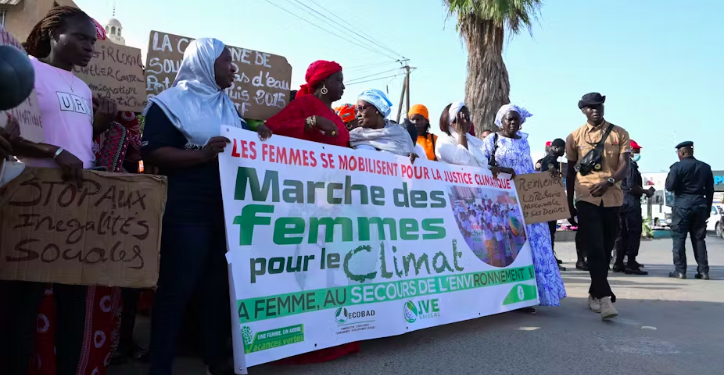The annual United Nations Conference of the Parties global climate change meetings play a pivotal role in elevating climate conversations.
They’re often accompanied by intense media coverage that raises awareness and engages the public. This visibility is crucial, as it brings discussions from distant, elite-driven events into local news.
However, the spikes in media attention around these international meetings leave a gap during the rest of the year. This raises the question: to what extent are the media helping develop climate literacy, especially in Africa, where the effects of climate change are more immediate and severe?
Research suggests that the African media’s coverage of climate change is slowly increasing. For example, before 2015, very few climate change stories made the front or editorial pages.
But by 2019, climate-related articles in South African media surged to over 8 000. Climate change actions and research by local non-governmental organisations and climate justice protests are regularly featured in the media.
Significant exclusion
Despite this improvement, media coverage is still concentrated in wealthier, urban-focused media outlets. This leaves lower-income communities and local media out of the conversation. This exclusion is significant because studies show that non-urban populations are less aware of climate change than city dwellers.
There is also a noticeable bias about who gets visibility in climate stories. In a forthcoming study of media coverage in South Africa, Nigeria, and Kenya, I and my co-author, Martin de Wit, found that most reporting was on government figures, followed by experts. Civil society, businesses and ordinary citizens received far less attention.
This elite-dominated narrative risks framing climate issues as problems that can be dealt with technically rather than those that society as a whole needs to understand and work towards solving. This can alienate people who want to help society adapt to climate change.
The case for creating awareness
Based on research I have done into how communication shapes and reveals public perceptions and attitudes towards environmental challenges, especially in Africa, I believe there is a need for ongoing environmental education about climate change on the continent.
The media must help make climate change an easy topic for everyday citizens to discuss. The media can help the public to develop a collective understanding of and support for climate policies, especially those discussed at global COP meetings.
Media attention to climate change is important because local communities need support to adapt to global warming, reduce their own emissions and cope with climate disasters.
Forums such as schools, religious gatherings and private meetings play a part in climate change awareness. But the media’s wide reach and influence make them a critical forum for building awareness of the human causes and potential solutions to climate change.
Climate literacy
The recent Afrobarometer survey conducted across 33 African countries found that only 28% of Africans are fully climate-literate (aware of climate change, its causes and its consequences).
A study I co-authored earlier this year illustrates this point. It shows that the South African public is sceptical about the loans that the government is taking out to adapt the country to climate change.
We analysed 3,980 Facebook comments about the US$8.5 billion climate deal offered to South Africa during COP26 in 2021 to move away from coal. Nearly three-quarters of the comments were negative.
This negativity was less about opposition to cleaner energy and more about concerns related to potential corruption. Readers voiced distrust in institutions and foreign interference. They feared South Africa would get into debt, and that the transition would lead to job losses.
Many South Africans feared the deal would not benefit them directly but would instead make existing inequalities worse.
At the core of these reactions is the tension between achieving environmental goals and addressing social justice. This points to the need for the green transition away from coal to be transparent, inclusive of everyone, and free from corruption.
What needs to happen next
One of the problems is that limited resources and training hinder journalists in Africa from investigating and reporting comprehensively on climate issues. Many newsrooms lack dedicated environmental reporters. Others treat climate change as a niche topic.
This needs to change. Environmental reporters should be made part of journalism beats like health, agriculture and economics.
Another challenge is that news outlets are increasingly shifting to online platforms. Paywalls and high data costs limit the public’s ability to engage with climate journalism further. This is especially the case in lower-income communities. Climate interventions should consider subsidising environmental journalism to close skill gaps, reduce operational costs and improve digital access.
International climate forums like COP29 are vital to global climate action. But the need for localised solutions cannot be overstated. The hierarchical nature of these forums often marginalises grassroots voices. This is particularly the case in Africa, where social justice must be woven into environmental efforts.
Media stakeholders must expand access and visibility for marginalised voices. This will foster a more inclusive and informed climate discussion in Africa.![]()
Dominic Ayegba Okoliko, Post-doctoral Fellow: Centre for Research on Evaluation, Science and Technology, Stellenbosch University
This article is republished from The Conversation under a Creative Commons license. Read the original article.














